Deputy Prime Minister Tran Hong Ha requested the Ministry of Agriculture and Rural Development to coordinate with the Ministry of Planning and Investment, Ministry of Finance, Ministry of Natural Resources and Environment, Ministry of Transport, etc. to review and determine specific goals to avoid overlapping with projects and plans that have been implemented in the Mekong Delta.
On the afternoon of October 24, at the meeting on the Project on Prevention and Control of Landslides, Floods, Droughts, and Saltwater Intrusion in the Mekong Delta by 2035, with a vision to 2050; the progress of resource mobilization to implement the Project on Sustainable Development of 1 million hectares of high-quality, low-emission specialized rice associated with green growth in the Mekong Delta by 2030, Deputy Prime Minister Tran Hong Ha emphasized that the "key" to the solution is the combination of irrigation and transport infrastructure projects.
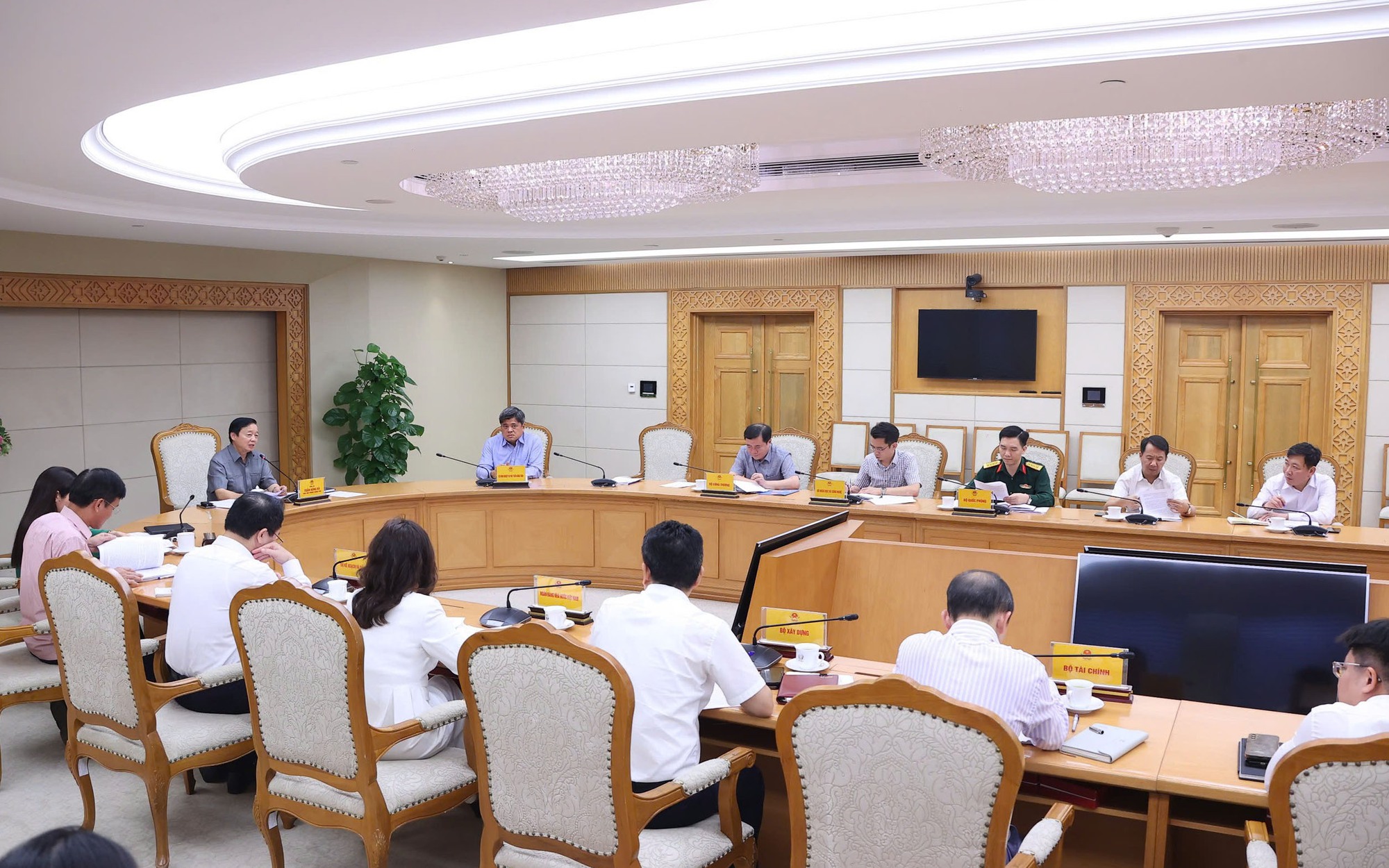
The Deputy Prime Minister listened to a report on the plan to mobilize capital to support infrastructure and techniques for high-quality and low-emission rice in the Mekong Delta. Photo: Internet.
According to the report of the Ministry of Agriculture and Rural Development, the Project on Prevention and Control of Landslides, Landslides, Floods, Droughts and Saltwater Intrusion in the Mekong Delta by 2035, with a vision to 2050, aims to improve the capacity to prevent and control land subsidence, land slides, flooding, droughts and saltwater intrusion; effectively and economically use water resources to contribute to ensuring stable livelihoods, sustainable socio-economic development and maintaining national security and defense in the Mekong Delta. At the same time, it serves as a basis for all levels and sectors to synchronously implement comprehensive solutions that are both urgent and long-term to adapt to climate change in the direction of risk management to gradually proactively and effectively control impacts and minimize damage caused by land subsidence, land slides, flooding, droughts and saltwater intrusion. The objective of the Project is to fundamentally resolve land subsidence in key areas by 2030; proactively and effectively control groundwater exploitation and water storage; Improve the capacity to forecast and warn of riverbank and coastal landslides; proactively rearrange the population, relocate households out of areas at risk of landslides; ensure control of saltwater intrusion in the dry season, maintain a stable water source for agricultural production, 80% of rural people use clean water from centralized sources... Leaders of the Ministry of Natural Resources and Environment and the Ministry of Planning and Investment requested the Ministry of Agriculture and Rural Development to review the contents and tasks assigned in the resolutions and decisions of the Government and the Prime Minister on prevention and control of subsidence, landslides, flooding, drought, and saltwater intrusion, to supplement and adjust the Project to ensure feasibility. Deputy Prime Minister Tran Hong Ha emphasized that in the process of developing the Project on Prevention and Control of Subsidence, Landslides, Floods, Droughts, and Saltwater Intrusion, the Ministry of Agriculture and Rural Development - the drafting agency, must have a comprehensive, systematic, scientific approach, closely following Resolution 120/NQ-CP of the Government on sustainable development of the Mekong Delta adapting to climate change, the Mekong Delta Regional Planning for the period 2021 - 2030, with a vision to 2050, and the strategies, plans, planning, and projects that have been developed.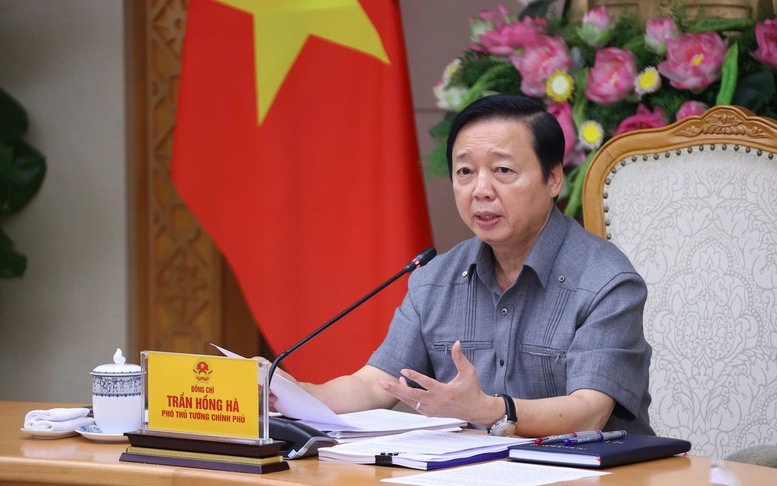
Prioritize important, urgent, multi-purpose projects in responding to climate change in the Mekong Delta. Photo: Internet.
At the same time, the Ministry of Agriculture and Rural Development coordinates with the Ministry of Planning and Investment, Ministry of Finance, Ministry of Natural Resources and Environment, Ministry of Transport... to review and determine the specific objectives of the Project, avoiding overlap with projects and plans that have been implemented.
The Deputy Prime Minister emphasized that the “key” is to combine irrigation and transport infrastructure projects to manage water resources, regulate upstream floods and distribute fresh water to the central region of the Mekong Delta and coastal areas; reduce groundwater exploitation to prevent subsidence; prevent landslides by technical infrastructure works combined with planning and rearranging residential areas along rivers, canals, and streams and support people to convert their livelihoods to freshwater, brackish water, and saltwater economic zones.
Yanjiang




![[Photo] Prime Minister Pham Minh Chinh starts construction of vital highway through Thai Binh and Nam Dinh](https://vphoto.vietnam.vn/thumb/1200x675/vietnam/resource/IMAGE/2025/5/12/52d98584ccea4c8dbf7c7f7484433af5)
![[Photo] Prime Minister Pham Minh Chinh works with the Standing Committee of Thai Binh Provincial Party Committee](https://vphoto.vietnam.vn/thumb/1200x675/vietnam/resource/IMAGE/2025/5/12/f514ab990c544e05a446f77bba59c7d1)

![[Photo] Prime Minister Pham Minh Chinh receives Swedish Minister of International Development Cooperation and Foreign Trade](https://vphoto.vietnam.vn/thumb/1200x675/vietnam/resource/IMAGE/2025/5/12/ae50d0bb57584fd1bbe1cd77d9ad6d97)
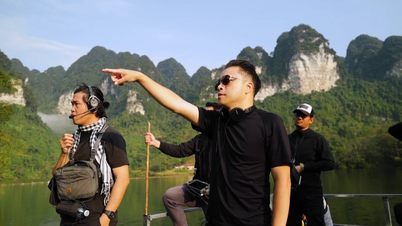

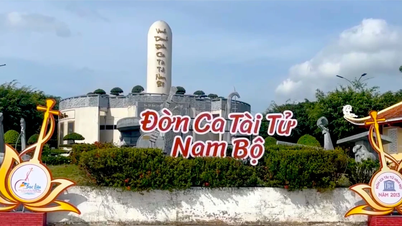

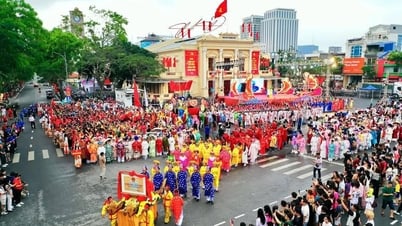





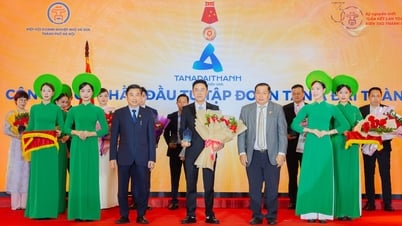
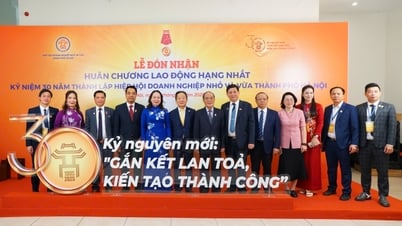


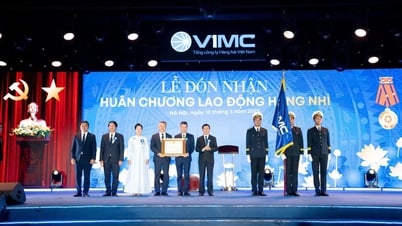






















































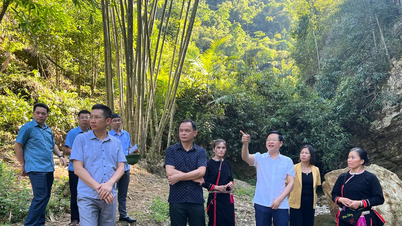

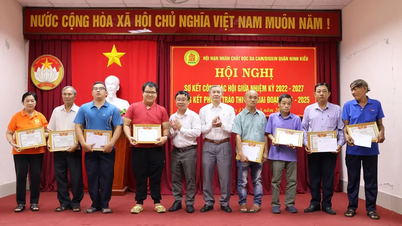

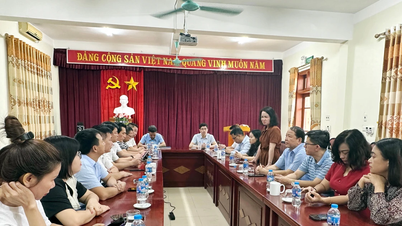










Comment (0)